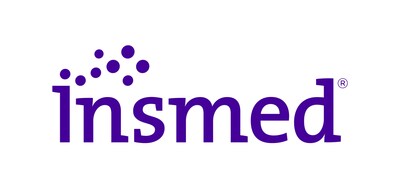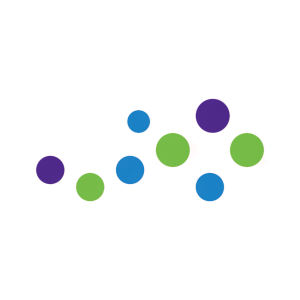CHMP Recommends EU Approval of BRINSUPRI™ (brensocatib) for the Treatment of Non-Cystic Fibrosis Bronchiectasis
Rhea-AI Summary
Insmed (Nasdaq: INSM) announced that the EMA Committee for Medicinal Products for Human Use (CHMP) adopted a positive opinion on BRINSUPRI (brensocatib 25 mg) on October 17, 2025, recommending approval for treatment of non-cystic fibrosis bronchiectasis (NCFB) in patients aged 12 years and older with two or more exacerbations in the prior 12 months.
BRINSUPRI was reviewed under the CHMP's accelerated assessment and had prior PRIME designation; the opinion is based on Phase 3 ASPEN and Phase 2 WILLOW data published in the New England Journal of Medicine. The European Commission will issue a final decision in the coming months.
Positive
- CHMP positive opinion adopted on October 17, 2025
- First-in-class DPP1 inhibitor; potential first approved EU therapy for NCFB
- Label covers patients aged 12+ with ≥2 exacerbations in prior 12 months
- Accelerated assessment and prior PRIME designation by EMA
- Efficacy evidence from Phase 3 ASPEN and Phase 2 WILLOW published in NEJM
Negative
- European Commission decision pending; final approval expected in coming months
- Approved indication limited to patients with ≥2 exacerbations, narrowing eligible population
News Market Reaction 1 Alert
On the day this news was published, INSM gained 1.57%, reflecting a mild positive market reaction.
Data tracked by StockTitan Argus on the day of publication.
— If Approved, BRINSUPRI Would Be the First and Only Treatment in the European Union for Non-Cystic Fibrosis Bronchiectasis (NCFB) and the First-in-Class DPPI Inhibitor Targeting Neutrophilic Inflammation
— BRINSUPRI Was Reviewed Under CHMP's Accelerated Assessment Pathway as It Is Considered of Major Interest for Public Health and Therapeutic Innovation —
"Non-cystic fibrosis bronchiectasis is a progressive disease that can lead to lung function decline—and with diagnoses rising steadily worldwide, there is an urgent need for additional treatment options," said
The CHMP opinion is based on a comprehensive scientific evaluation of the marketing authorization application, including data from the Phase 3 ASPEN and Phase 2 WILLOW studies, which were both published in the New England Journal of Medicine. BRINSUPRI was reviewed under accelerated assessment by the EMA as it is deemed to be of major interest for public health and therapeutic innovation. BRINSUPRI had previously been granted Priority Medicines (PRIME) designation by the EMA for the treatment of NCFB following positive Phase 2 study results from WILLOW. The European Commission (EC) will review the CHMP opinion, with a final decision anticipated in the coming months.
"With this positive CHMP opinion and the recent FDA approval of BRINSUPRI, we are witnessing the beginning of a new chapter for patients living with NCFB - a serious, chronic lung condition that has long lacked approved treatment options in the European Union," said Martina Flammer, M.D., MBA, Chief Medical Officer of Insmed. "For too long, patients and families have had to endure the daily burden of this disease without a treatment specifically developed to treat bronchiectasis. At Insmed, our focus remains on delivering first- and best-in-class therapies to patients with serious diseases, and this important milestone brings us one step closer to potentially bringing the first-ever approved treatment to NCFB patients in
About BRINSUPRI™ (brensocatib)
BRINSUPRI™ (brensocatib) is a small molecule, once-daily, oral, reversible inhibitor of dipeptidyl peptidase 1 (DPP1) and is indicated in
About
About WILLOW
WILLOW was a randomized, double-blind, placebo-controlled, parallel-group, multi-center, multi-national, Phase 2 study to assess the efficacy, safety and tolerability, and pharmacokinetics of brensocatib administered once daily for 24 weeks in patients with non-cystic fibrosis bronchiectasis (NCFB). WILLOW was conducted at 116 sites and enrolled 256 adult patients diagnosed with NCFB who had at least two documented pulmonary exacerbations in the 12 months prior to screening. Patients were randomized 1:1:1 to receive either 10 mg or 25 mg of brensocatib or matching placebo. The primary efficacy endpoint was the time to first pulmonary exacerbation over the 24-week treatment period in the brensocatib arms compared to the placebo arm.
About Bronchiectasis
NCFB is a serious, chronic, and progressive inflammatory lung disease in which the bronchi become permanently dilated due to a cycle of infection, inflammation, lung tissue damage and mucociliary dysfunction. The disease is marked by frequent pulmonary exacerbations requiring antibiotic therapy and/or hospitalizations. Symptoms include chronic cough, excessive sputum production, shortness of breath, fatigue and repeated respiratory infections, which can worsen the underlying disease. Today, approximately 500,000 patients in the
BRINSUPRI™ (brensocatib)
Indication in the
BRINSUPRI is indicated for the treatment of non-cystic fibrosis bronchiectasis (NCFB) in adult and pediatric patients 12 years of age and older.
Important Safety Information in the
WARNINGS AND PRECAUTIONS
Dermatologic Adverse Reactions
Treatment with BRINSUPRI is associated with an increase in dermatologic adverse reactions, including rash, dry skin, and hyperkeratosis. Monitor patients for development of new rashes or skin conditions and refer patients to a dermatologist for evaluation of new dermatologic findings.
Gingival and Periodontal Adverse Reactions
Treatment with BRINSUPRI is associated with an increase in gingival and periodontal adverse reactions. Refer patients to dental care services for regular dental checkups while taking BRINSUPRI. Advise patients to perform routine dental hygiene.
Live Attenuated Vaccines
It is unknown whether administration of live attenuated vaccines during BRINSUPRI treatment will affect the safety or effectiveness of these vaccines. The use of live attenuated vaccines should be avoided in patients receiving BRINSUPRI.
ADVERSE REACTIONS
The most common adverse reactions ≥
Less Common Adverse Reactions
Liver Function Test Elevations
In
Skin Cancers
In
Alopecia
In
USE IN SPECIFIC POPULATIONS
Pregnancy: There are no clinical data on the use of BRINSUPRI in pregnant women.
Lactation: There is no information regarding the presence of BRINSUPRI and/or its metabolite(s) in human milk, the effects on the breastfed infant, or the effects on milk production. The developmental and health benefits of breastfeeding should be considered along with the mother's clinical need for BRINSUPRI and any potential adverse effects on the breastfed child from BRINSUPRI or from the underlying maternal condition.
Pediatric use: The safety and effectiveness of BRINSUPRI for the treatment of NCFB have been established in pediatric patients aged 12 years and older. Common adverse reactions in pediatric patients aged 12 years and older enrolled in
Please see full US Prescribing Information.
About Insmed
Insmed Incorporated is a people-first global biopharmaceutical company striving to deliver first- and best-in-class therapies to transform the lives of patients facing serious diseases. The Company is advancing a diverse portfolio of approved and mid- to late-stage investigational medicines as well as cutting-edge drug discovery focused on serving patient communities where the need is greatest. Insmed's most advanced programs are in pulmonary and inflammatory conditions, including two approved therapies to treat chronic, debilitating lung diseases. The Company's early-stage programs encompass a wide range of technologies and modalities, including gene therapy, AI-driven protein engineering, protein manufacturing, RNA end-joining, and synthetic rescue.
Headquartered in
Forward-looking Statements
This press release contains forward-looking statements that involve substantial risks and uncertainties. "Forward-looking statements," as that term is defined in the Private Securities Litigation Reform Act of 1995, are statements that are not historical facts and involve a number of risks and uncertainties. Words herein such as "may," "will," "should," "could," "would," "expects," "plans," "anticipates," "believes," "estimates," "projects," "predicts," "intends," "potential," "continues," and similar expressions (as well as other words or expressions referencing future events, conditions or circumstances) may identify forward-looking statements.
The forward-looking statements in this press release are based upon the Company's current expectations and beliefs, and involve known and unknown risks, uncertainties and other factors, which may cause the Company's actual results, performance and achievements and the timing of certain events to differ materially from the results, performance, achievements or timings discussed, projected, anticipated or indicated in any forward-looking statements. Such risks, uncertainties and other factors include, among others, the following: failure to successfully commercialize BRINSUPRI in the
The Company may not actually achieve the results, plans, intentions or expectations indicated by the Company's forward-looking statements because, by their nature, forward-looking statements involve risks and uncertainties because they relate to events and depend on circumstances that may or may not occur in the future. For additional information about the risks and uncertainties that may affect the Company's business, please see the factors discussed in Item 1A, "Risk Factors," in the Company's Annual Report on Form 10-K for the year ended December 31, 2024 and any subsequent Company filings with the Securities and Exchange Commission (SEC).
The Company cautions readers not to place undue reliance on any such forward-looking statements, which speak only as of the date of this press release. The Company disclaims any obligation, except as specifically required by law and the rules of the SEC, to publicly update or revise any such statements to reflect any change in expectations or in events, conditions or circumstances on which any such statements may be based, or that may affect the likelihood that actual results will differ from those set forth in the forward-looking statements.
Contact:
Investors
Bryan Dunn
Vice President, Investor Relations
(646) 812-4030
investor.relations@insmed.com
Media
Claire Mulhearn
Vice President, Corporate Communications
(862) 842-6819
media@insmed.com
![]() View original content to download multimedia:https://www.prnewswire.com/news-releases/chmp-recommends-eu-approval-of-brinsupri-brensocatib-for-the-treatment-of-non-cystic-fibrosis-bronchiectasis-302587501.html
View original content to download multimedia:https://www.prnewswire.com/news-releases/chmp-recommends-eu-approval-of-brinsupri-brensocatib-for-the-treatment-of-non-cystic-fibrosis-bronchiectasis-302587501.html
SOURCE Insmed Incorporated







